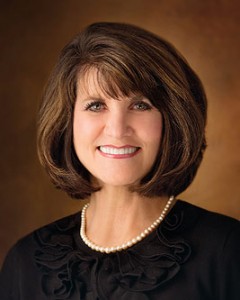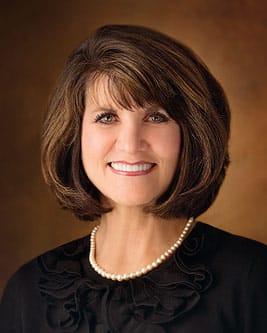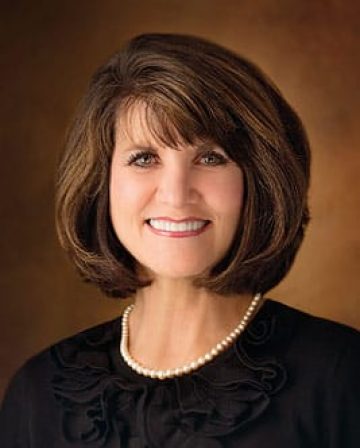 It seems that the theme for this women’s meeting is covenants and the temple. Sister Jean A. Stevens, first counselor in the Primary Presidency focused on the covenants, starting with the baptismal covenant and leading up to the temple. She used her own mother as the central example saying she had a “remarkable connection to heaven” and later used quotes from many women of differing ages and their examples of looking to the temple. I loved that she used regular Church members and especially women as examples and multiple times emphasized that we all have different paths. We have so few in the scriptures and often go through whole Sunday School or RS lessons without any quotes from women. I also liked her story of her parents getting married before her father’s mission- it’s a great example of how our current practices aren’t doctrine and that there is a lot of leeway in how we practice the gospel. I really enjoyed her talk and I don’t have much to add to it, so I will share some of my favorite quotes from her talk.
It seems that the theme for this women’s meeting is covenants and the temple. Sister Jean A. Stevens, first counselor in the Primary Presidency focused on the covenants, starting with the baptismal covenant and leading up to the temple. She used her own mother as the central example saying she had a “remarkable connection to heaven” and later used quotes from many women of differing ages and their examples of looking to the temple. I loved that she used regular Church members and especially women as examples and multiple times emphasized that we all have different paths. We have so few in the scriptures and often go through whole Sunday School or RS lessons without any quotes from women. I also liked her story of her parents getting married before her father’s mission- it’s a great example of how our current practices aren’t doctrine and that there is a lot of leeway in how we practice the gospel. I really enjoyed her talk and I don’t have much to add to it, so I will share some of my favorite quotes from her talk.
“We are known and loved individually by Him.”
“As we stand in the waters of baptism, we look to the temple.”
“Tonight we gather as covenant women of God. Our ages, circumstances & personalities cannot separate us. ”
“Temples are an expression of God’s love”
“Every mighty change of heart matters to the Lord and it will make all the difference to you, for as we go to his holy house, we can be armed with his power, his name upon us, his glory round about us, and his angels have charge over us.”
I am really looking forward to re-reading the talks from this meeting when they become available. I hope you all can find something for yourselves in at least one of these talks.






4 Responses
[…] “As we stand in the waters of baptism, we look …read more […]
This meeting was enjoyable and I loved that it featured international voices. But I also feel frustrated. The theme was temples, so we had not one but three talks about temples, all by women and for women. In theory, this could have been the perfect opportunity to address the concerns many women have with temples. Why must women covenant to hearken to their husbands but men do not covenant to hearken to their wives? Why do only men get the opportunity to covenant to hearken to God? What does it mean to be anointed to have priesthood unto one’s husband instead of unto God? Why does Eve become silenced at a certain point in the ceremony, with Adam taking over? Why is there no mention of Heavenly Mother at all? Why do women cover their faces to pray? Why do women give themselves to their husbands in marriage, but their husbands do not give themselves to their wives in return? Why are remarriage policies for men and women so different? Do we still enforce postmortal polygamy in temples? Why do endowed women wear the garment of the Holy Priesthood day and night when we are forbidden from exercising the priesthood outside the temple? And can we learn more about the priesthood women exercise in the temple? Do female temple workers have the priesthood? What is it about womanhood that makes us capable of officiating priesthood ordinances in temples, but not in public?
This conference continued the myth that all women enjoy and are uplifted by the temple. There was no acknowledgement that the temple can be a challenging, disappointing or even painful experience. By implication, if you don’t love participating in the temple ceremonies, you are a complete anomaly. Are our female leaders, who, based on their words, seem to see temple attendance as rewarding in and of itself, incapable of empathy for women who do not have good experiences in the temple?
Essentially, I feel like the meeting sacrificed depth and an opportunity to address difficult issues in order to be enjoyable. Is it more important that women have a pleasant meeting than that we address any of the barriers to female temple worship?
Agreed, April. I don’t take the temple at all literally, (to do so just makes it rediculous for me) which probably has made it tolerable for me. But with that, I feel like the focus on temples is more like introducing propaganda to young girls in hope they might remain on the church, rather than addressing any of the hard questions that will come. Because the hard questions come to me, but I survive in my belief that it is symbolic and ritualistic, rather than compleletly divine. As you said, it was a concentrated effort to ignore the elephant in the room.
There was a line in Sister Stevens’ talk that went something like this (I’m going totally from memory): ‘there is no one anywhere or any place that has as much impact on us as a mother’. And yet, the entire rest of the talk emphasized only our relationship with a Heavenly Father, not Mother or Parents (like Elder Uchtdorf did, thankfully).
From my notes: “You are his. His covenant, you are connected to him, your place in his kingdom, you are known and loved individually by him, bring us home to his home, special place in his heart. Learn of him, feel his love, learn his power, his name upon us, his glory round about us, return to live with him. His covenants.”
In the middle of this talk, the line I tried to recreate from memory seemed so out of place. If a mother is the most important, then why do we talk about the Father exclusively? I love Him, but I hate ignoring Her.